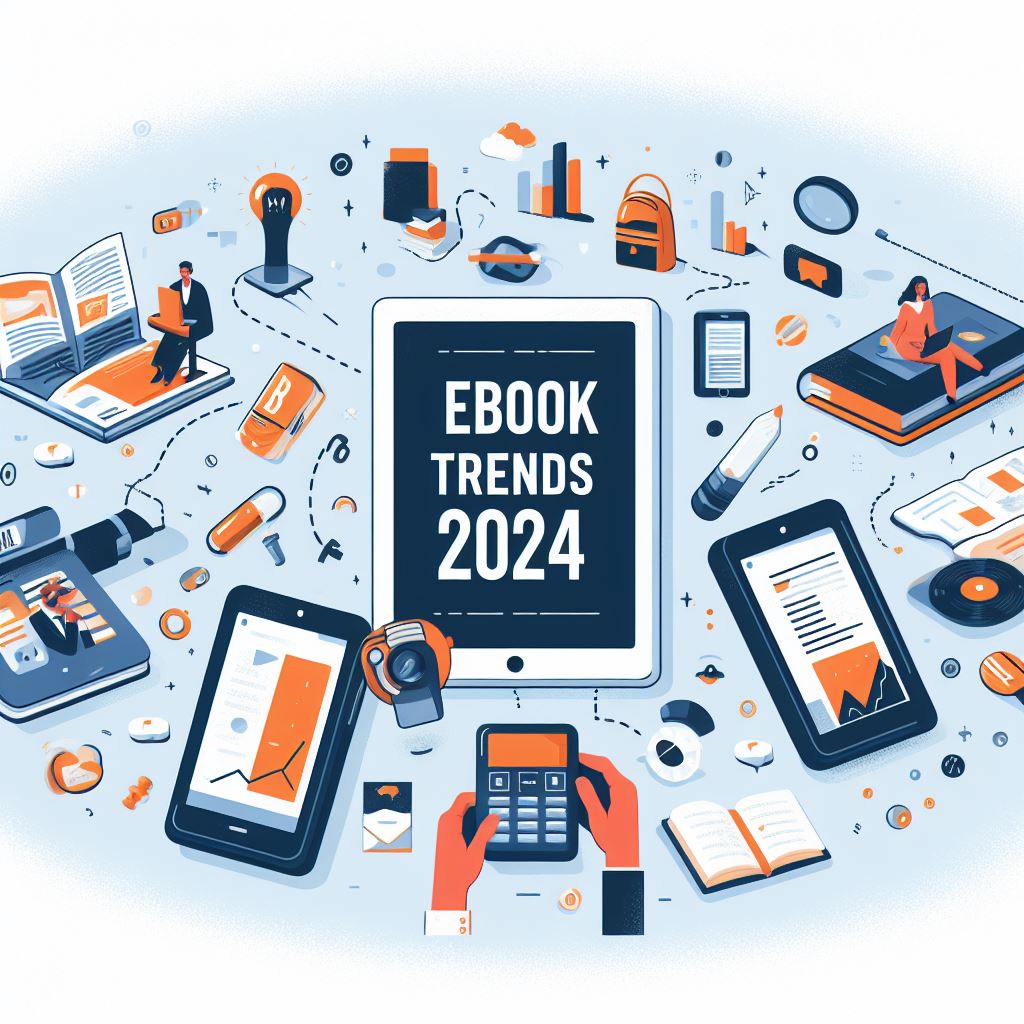
Introduction
In the ever-evolving landscape of publishing, staying ahead of the curve is crucial for authors, entrepreneurs, and business enthusiasts alike. Understanding the latest trends can be the key to success in an industry that is constantly transforming. As we look towards 2024, three pivotal trends are set to reshape the world of publishing, offering unique opportunities for aspiring authors. In this article, we will explore these trends and how they can shape the future of the publishing industry.
Trend #1: The Rise of Digital Reading
The digital revolution is upon us, and eBooks are taking centre stage. The popularity of eBooks has been steadily growing, with 191 million eBooks purchased in 2020 alone. This surge can be attributed to the convenience and accessibility that digital reading provides. With the ability to start reading immediately after purchase, without leaving the comfort of home, readers are embracing eBooks in increasing numbers.
Additionally, the portability of eBooks allows readers to carry an entire library in their pocket. Whether it’s on a dedicated e-reader like Amazon’s Kindle or through a mobile app on smartphones and tablets, eBooks have become a convenient way for readers to access their favourite stories on the go.
Furthermore, eBooks offer customization options that traditional print books cannot match. Students at all levels can benefit from features like marking up passages for quick reference, adding notes, annotations, and even website links. This level of interactivity enhances the reading experience and makes eBooks an attractive choice for a wide range of readers.
Trend #2: The Audiobook Revolution
In today’s fast-paced world where time is a luxury, audiobooks have become increasingly popular. They offer a convenient way for readers to enjoy stories while on the move, whether they are commuting, working out, or doing household chores. The multitasking-friendly nature of audiobooks has played a significant role in their rapid growth over the years.
Popular platforms like Audible have played a vital role in the surge of audiobook consumption. In the last 15 years, searches for “audible” have risen by a staggering 167%. With Audible alone hosting over 200,000 audiobooks, readers have a vast selection to choose from.
The rise of audiobooks presents a unique opportunity for aspiring authors. By converting their written works into audiobooks, authors can reach a broader audience and cater to those with busy schedules. The demand for audiobooks is expected to continue growing well into 2024, making it an attractive avenue for authors looking to expand their readership.
Trend #3: The Impact of Artificial Intelligence (AI)
Artificial Intelligence (AI) is reshaping countless industries and publishing is no exception. AI-driven tools are now assisting writers and publishers in various aspects of content creation. From generating ideas and helping with outlines to providing personalized reader recommendations, AI is augmenting human creativity and amplifying storytelling capabilities.
While AI is not yet capable of writing bestselling novels, it can improve stories and increase audience engagement. Tools like ChatGPT can help authors structure their novels, suggest writing prompts, and provide helpful answers to specific prompts. AI serves as a valuable tool in the writing process, offering support and enhancing efficiency.
Publishers are also utilizing AI for content classification, acquisitions, plagiarism checks, and book marketing. The opportunities associated with AI in the publishing world are seemingly endless. Digital marketing and promotion have become more accessible than ever before, with publishers tracking consumer behaviour and data like never before.
The Universal Power of Storytelling
Amidst all these technological advancements, it is important to remember the timeless essence of storytelling. Regardless of the format or the tools used, storytelling remains the universal thread that connects us. Stories transcend cultural differences, language barriers, and geographical distances. They evoke emotions, provoke thoughts, and foster empathy.
The publishing industry plays a vital role in ensuring diverse voices and narratives are heard. Independent publishing, in particular, has provided a platform for marginalized authors, enabling them to share their stories and perspectives. It is essential to continue promoting diversity in publishing, breaking down barriers, and amplifying voices that have traditionally been underrepresented.
As we venture into 2024, it is important to celebrate these transformative trends that are reshaping the publishing landscape. eBooks, audiobooks, and AI are not just tools; they are enablers, empowering us to share stories in innovative ways and fostering a deeper sense of connection among us.
Conclusion
The future of publishing is bright, with eBook trends, the rise of audiobooks, and the impact of AI revolutionizing the industry. Aspiring authors have a wealth of opportunities at their fingertips. Embracing these trends can expand their reach, connect with a wider audience, and enhance their storytelling capabilities. In the ever-evolving world of publishing, staying informed and adapting to change is key. Let us embrace the future of publishing in 2024 and beyond, as we continue to celebrate the power of storytelling and the transformative impact it has on our lives.

